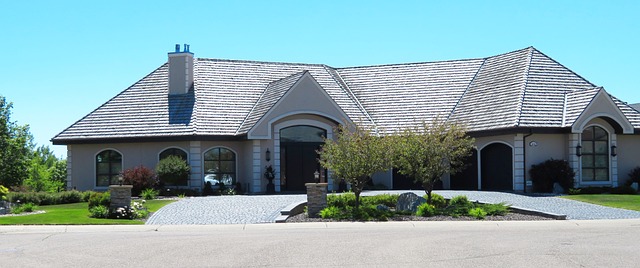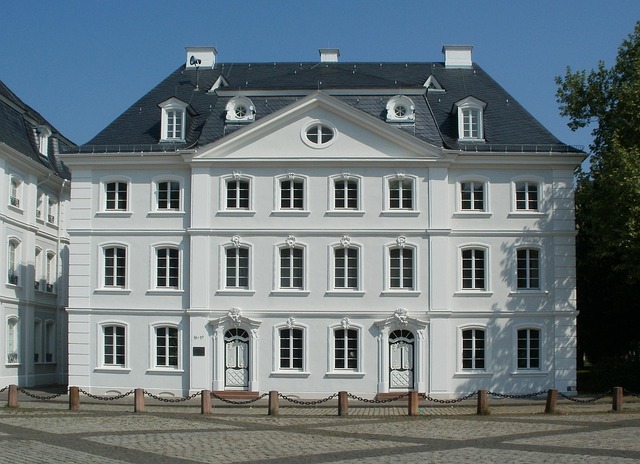The property landscape in Singapore has been significantly reshaped with the recent policy change that allows foreigners to purchase Executive Condominiums (ECs) without any restrictions. This inclusive move is expected to elevate the status of ECs as a preferred choice for both local residents and international investors, offering a cost-effective alternative to private condominiums. The lift on previous eligibility barriers for foreign buyers has broadened the appeal of ECs, emphasizing Singapore's commitment to fostering a dynamic and accessible property market that caters to a diverse range of needs and aspirations. Executive Condominium Ec options in Singapore are now more attractive than ever, as they provide a blend of affordability, convenience, and the prestige of condo living within prime locations, making them a noteworthy investment opportunity and a key part of Singapore's real estate sector.
Singapore’s property landscape offers diverse living solutions, with Executive Condominiums (ECs) being a popular choice for both locals and eligible foreigners. This article demystifies ECs, detailing the specific eligibility criteria for foreign buyers, the application process, and how these housing options compare to other public housing types. Whether considering the financial aspects or the implications of recent policy changes, this guide provides a comprehensive overview of the opportunities and considerations for those interested in owning an EC in Singapore.
- Understanding Executive Condominium (EC) Housing in Singapore
- Eligibility Criteria for Foreigners Buying into ECs in Singapore
- The Application Process for Foreigners Seeking an EC in Singapore
- Key Differences Between Buying an EC and Other Public Housing Options
- Financial Considerations and Affordability of Executive Condominiums for Foreigners
- Future Prospects: What the Lifting of EC Restrictions on Foreigners Means for Buyers
Understanding Executive Condominium (EC) Housing in Singapore

In the dynamic housing landscape of Singapore, the Executive Condominium (EC) stands out as a unique hybrid of public and private housing designed for both singles, families, and couples. These residences offer a blend of affordability and quality living, catering to the needs of upgraders looking to step up from HDB flats. Unlike traditional public housing, ECs provide the luxury of private condo facilities while being sold at subsidized prices. They also come with a lease duration of 99 years, similar to most private condos. Prospective buyers must meet specific criteria; for instance, one or both owners must be Singapore Citizens, and the income ceiling must not be exceeded. Additionally, applicants are not allowed to own another property at the time of application. TheEC scheme is a testament to the Singapore government’s commitment to providing housing solutions that cater to diverse needs, promoting sustainable living, and encouraging community building among residents.
The journey towards ownership of an Executive Condominium (EC) in Singapore requires careful consideration of the eligibility criteria set forth by the Housing & Development Board (HDB). Foreigners interested in purchasing EC units must do so within a framework that differentiates them from local buyers. Under the Current Private Residential Property Act, only Singapore Citizens, Permanent Residents, or a combination of both (with the Singaporean spouse as the sole applicant) are eligible to purchase new EC units directly from developers. This policy is designed to ensure a stable and predictable property market, where local first-time homeowners have priority. Furthermore, foreigners who are eligible to buy ECs are subject to the Additional Buyer’s Stamp Duty (ABSD), reflecting Singapore’s strategic approach to balanced housing policies that prioritize the needs of its citizens and permanent residents.
Eligibility Criteria for Foreigners Buying into ECs in Singapore

Executive Condominiums (ECs) in Singapore offer a unique housing option for both local and foreign professionals, combining the benefits of a public flat with the features of a private condo over a certain period. As of the latest updates, foreigners are eligible to buy an EC unit only if they meet specific criteria set by the CPF Board and the Housing & Development Board (HDB). To be eligible, foreigners must either be Singaporean permanent residents married to Singaporeans or eminent investors/entrepreneurs who have been granted approval by Singapore’s Land Authority (LTA) and the Economic Development Board (EDB), or they must be part of the Government’s scheme to encourage the employment of foreign professionals in specific areas, such as healthcare and education.
Foreigners interested in purchasing an EC unit must ensure that they fulfill the following requirements: they must enter into a Monetary Authority of Singapore (MAS) approved financial housing loan, take Singapore dollars loans from approved financial institutions for at least 70% of the purchase price, and not own any residential property local or abroad 30 months before and after the date of application. It is also crucial to note that the EC must be solely for the use of the foreigner and their family, and they cannot sublet the entire flat or sell the EC to another foreigner. These strict criteria are in place to maintain a balance between providing housing options for various groups and ensuring the stability of Singapore’s property market. Foreigners interested in ECs should refer to the latest guidelines from the CPF Board, HDB, and LTA as these rules are subject to change to align with national policies and economic considerations.
The Application Process for Foreigners Seeking an EC in Singapore

For foreign professionals considering the purchase of an Executive Condominium (EC) in Singapore, understanding the application process is crucial. As of the current regulations, foreigners are eligible to apply for an EC if they meet specific criteria. They must either be a Singaporean citizen’s spouse or a single Singaporean citizen who has not previously owned a subsidized flat. Additionally, they must have the necessary finances to purchase the EC without relying on HDB financial housing grants.
The application process begins with acquiring the Foreign Worker License Renewal (FWRL) from the Ministry of Manpower (MOM). This license confirms that the foreigner has a valid employment pass and intends to commit to a long-term stay in Singapore. Following this, the foreigner can then apply for an EC with the Housing & Development Board (HDB). The application must be submitted within eight weeks from the date of issuance of the FWRL. Applicants must also meet income ceilings and provide necessary documentation, including their passport, employment pass, and a declaration form stating their eligibility. Upon approval, foreigners can proceed with the purchase, adhering to the stipulated criteria set forth by the HDB for EC ownership. Throughout this process, it is advisable to consult with real estate professionals who specialize in ECs to navigate the application requirements and ensure a smooth transaction.
Key Differences Between Buying an EC and Other Public Housing Options

When considering the purchase of a residential property in Singapore, understanding the key differences between buying an Executive Condominium (EC) and other public housing options is crucial for foreigners. An EC is a hybrid of a public and a private flat, designed to offer a stepping stone into home ownership for young couples and families. Unlike Housing & Development Board (HDB) flats, which are solely for Singapore Citizens or Permanent Residents, ECs are open to both categories as well as eligible foreigners. One of the primary differences is the lease duration; while HDB flats come with a 99-year lease, certain ECs have a shorter lease of 90 years from the date of takeover. This can impact the future saleability and valuation of the property.
Another significant distinction lies in the eligibility criteria. Foreigners who are married to or in a long-fad relationship (at least 3 years) with Singapore Citizens or Permanent Residents may apply to buy an EC, subject to approval from the Housing & Development Board (HDB). Moreover, after five years of living in the EC, foreign owners can sell the unit to either citizens or permanent residents. This resale option is not available for other public housing types. Additionally, upon satisfying the necessary criteria, including having held Singapore Permanent Residence for at least 2 years, foreigners can opt to apply for the purchase of a regular HDB flat instead. However, they would then be subject to the stricter resale conditions that apply to non-citizens. Understanding these distinctions is essential for foreigners considering an EC as their home in Singapore, as it offers a unique blend of affordability and flexibility not found in other public housing options.
Financial Considerations and Affordability of Executive Condominiums for Foreigners

When considering the purchase of an Executive Condominium (EC) in Singapore, financial considerations and affordability are paramount for foreigners. Unlike private condominiums, ECs offer a hybrid housing option that is a step up from public housing but at a relatively more affordable price point. For foreigners, the eligibility to purchase an EC unit hinges on their ability to meet certain financial criteria. They must ensure they have the necessary funds to cover the down payment and monthly mortgage payments, as ECs are subject to Loan-to-Value (LTV) limits that may be less favorable than those for private properties. Additionally, foreigners are limited in their leverage, typically able to secure up to 75% of the purchase price with a bank loan, compared to Singaporeans who can borrow up to 80% and 90% for new and resale ECs, respectively.
The affordability of ECs for foreigners also depends on the prevailing interest rates and the total debt servicing ratio (TDSR) framework, which caps the amount of an individual’s monthly income that can be used to repay all types of outstanding credit facilities. Prospective foreign buyers must assess their financial situation realistically, taking into account their long-term commitments and the stability of their income. It is crucial for them to engage in thorough financial planning and possibly seek advice from financial advisors who specialize in property investments to navigate the nuances of EC financing. This careful planning ensures that foreigners can responsibly invest in an EC without overextending their finances, thereby securing a comfortable and sustainable living arrangement in Singapore.
Future Prospects: What the Lifting of EC Restrictions on Foreigners Means for Buyers

The lifting of Executive Condominium (EC) restrictions on foreigners presents a significant shift in Singapore’s property market landscape, offering new opportunities for international buyers. Previously, ECs were primarily accessible to Singapore citizens and permanent residents, with foreigners permitted to purchase these dual-use housing units only after meeting specific criteria or waiting periods. This policy adjustment indicates a strategic move by the government to cater to the diverse needs of the population and the global market. The decision is poised to enhance the appeal of ECs as a housing option for both locals and foreigners alike, potentially driving up demand and property values in this segment. For buyers, this change means greater flexibility and choice in residential options, as ECs often offer a blend of condominium facilities and the relative affordability compared to private condos, all within close proximity to amenities and future growth areas. As Singapore continues to evolve as a global hub, the removal of these restrictions is expected to contribute positively to the property market’s vibrancy and to position Singapore as an attractive destination for real estate investment, particularly in the Executive Condominium ec niche.
Singapore’s property landscape offers diverse housing options, with Executive Condominiums (ECs) standing out as a significant choice for both locals and eligible foreigners. This article has delved into the intricacies of EC eligibility for foreigners, outlining the necessary criteria, application procedures, and key distinctions from other public housing types. For those considering an investment or a home in Singapore, understanding the financial implications and affordability aspects of ECs is crucial. As restrictions on EC ownership by foreigners lift, the opportunities for international buyers to tap into this segment of the property market expand, signaling a potentially robust real estate sector with diverse demographic participation. Prospective buyers should take note of the evolving landscape and consider how an EC fits into their long-term housing strategy within Singapore’s dynamic property ecosystem.



